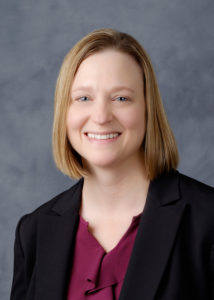Allison McWilliams: Be intentional

Allison McWilliams
Allison McWilliams is assistant vice president, mentoring and alumni personal & career development. She writes occasional articles for Inside WFU. This is her second for the spring semester. In each, she shares observations and suggestions with faculty and staff from her professional experiences with students.
“Find out who you are. And, do it on purpose.” Dolly Parton.
Whenever I am meeting with students and young alumni, there are four key questions that frame our conversations:
- How are you being intentional with the choices and decisions that you are making?
- How are you setting goals and taking actions to pursue them?
- How are you seeking out feedback from mentors and wise counselors on your choices, decisions, and goals?
- And, how are you intentionally reflecting on what you are learning?
These four questions are the critical elements of any effective mentoring conversation and the process of moving from adolescence to adulthood. As such, I would like to unpack each of these four elements so that you, too, can think about how to help your students to own their growth and development for what comes next, for them.
The first piece is all about intentionality. We each have a choice as we move through our lives: show up and be present, or sleepwalk through and wonder how and why we ended up where we do. Being intentional means showing up and recognizing that every single choice that we make has an impact on what comes next. As a student, this means thinking critically about one’s course of study and major selection, extracurricular activities, internships and research projects, study abroad and part-time jobs, and with whom one chooses to spend one’s time. Each represents a choice that is dictated by available resources, future aspirations, and values. And at the same time, each of those decisions will reveal a bit about priorities, future aspirations, and values.
Most of our students arrive at Wake Forest with their lives completely scripted for them. But this won’t always be the case. An important part of their experience here with us is learning the decision-making tools and strategies that will serve them after they leave here, as adults in the world. We can help them with this process by asking those thought-provoking questions that start with why, what, and how: Why are you making this choice? What are the resources that you will need to make it happen? What will this decision allow you to do/prevent you from doing? How does this decision align with who you are? Each of these questions pushes the student to reflect on and take ownership for the choices they are making.
In the next piece I will talk about the second element, setting goals and taking action towards achieving them.
Categories: University Announcements
